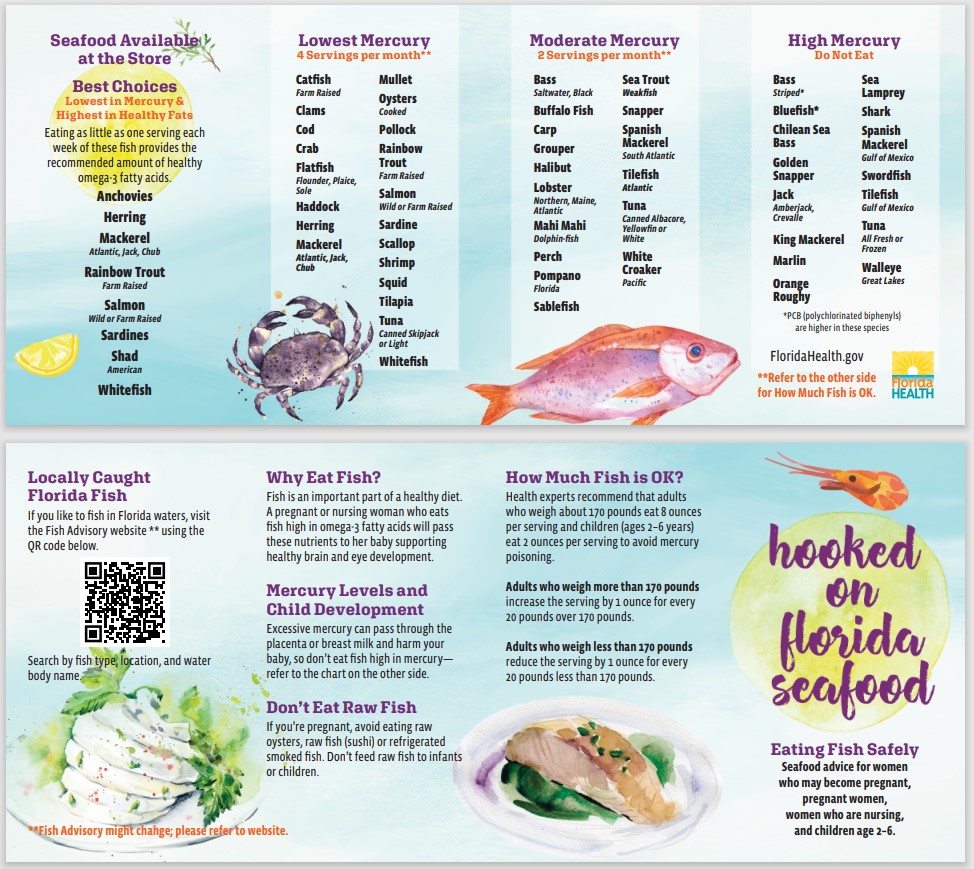It's a New Day in Public Health.
The Florida Department of Health works to protect, promote, and improve the health of all people in Florida through integrated state, county, and community efforts.
Seafood Consumption
Contact the Public Health Toxicology Section
Fish are rich in vitamins, low in fat and can help reduce the risk of heart attack and stroke, they bring undeniable health benefits to the table.
Women of Childbearing Age or Pregnant
There are plenty of safe, delicious fish options for pregnant or soon-to-be pregnant women to enjoy. Fish are especially wonderful for women who are expecting because they provide so many nutrients for boosting a baby's growth and development.
For most people, the risk of eating mercury-exposed fish is not a health concern, but developing fetuses and young children are more sensitive to the effects mercury has on the brain.
- Check out the Department's wallet card for childbearing aged women. Tuck it in your diaper bag or wallet to help make healthy choices when you are out to eat or shopping.
Fisher or Angler
Just like fish can be fun (and challenging at times) to catch, they can be rewarding to eat. You may not always be able to control which fish at are the end of your line, but you can control what fish makes it to your stomach.
- Check out the Department's basic guidelines for eating freshwater fish in Florida for tips on what to consume and what to throw back in each Florida region.
- Additional freshwater information and saltwater advisories can be found at the fish advisory page.
Health Care Providers
Adults should eat about 8 ounces of fish each week, and women who are pregnant, or breastfeeding, should eat 8-12 ounces (cooked weight) of fish per week, with an emphasis on low mercury fish.
Examples include but are not limited to farm-raised catfish, clam, cod, crab, flounder, haddock, herring, mullet, cooked oyster, pollock, scallop, shrimp, squid, tilapia, or canned skipjack or light tuna (canned skipjack or light).
A meal portion is typically considered to be about 6 ounces of cooked fish, and eating a variety of fish provides the most benefit.
Resources

Find current information about Florida's water quality status and public health notifications for harmful algal blooms and beach conditions by visiting Protecting Florida Together.



Connect with DOH